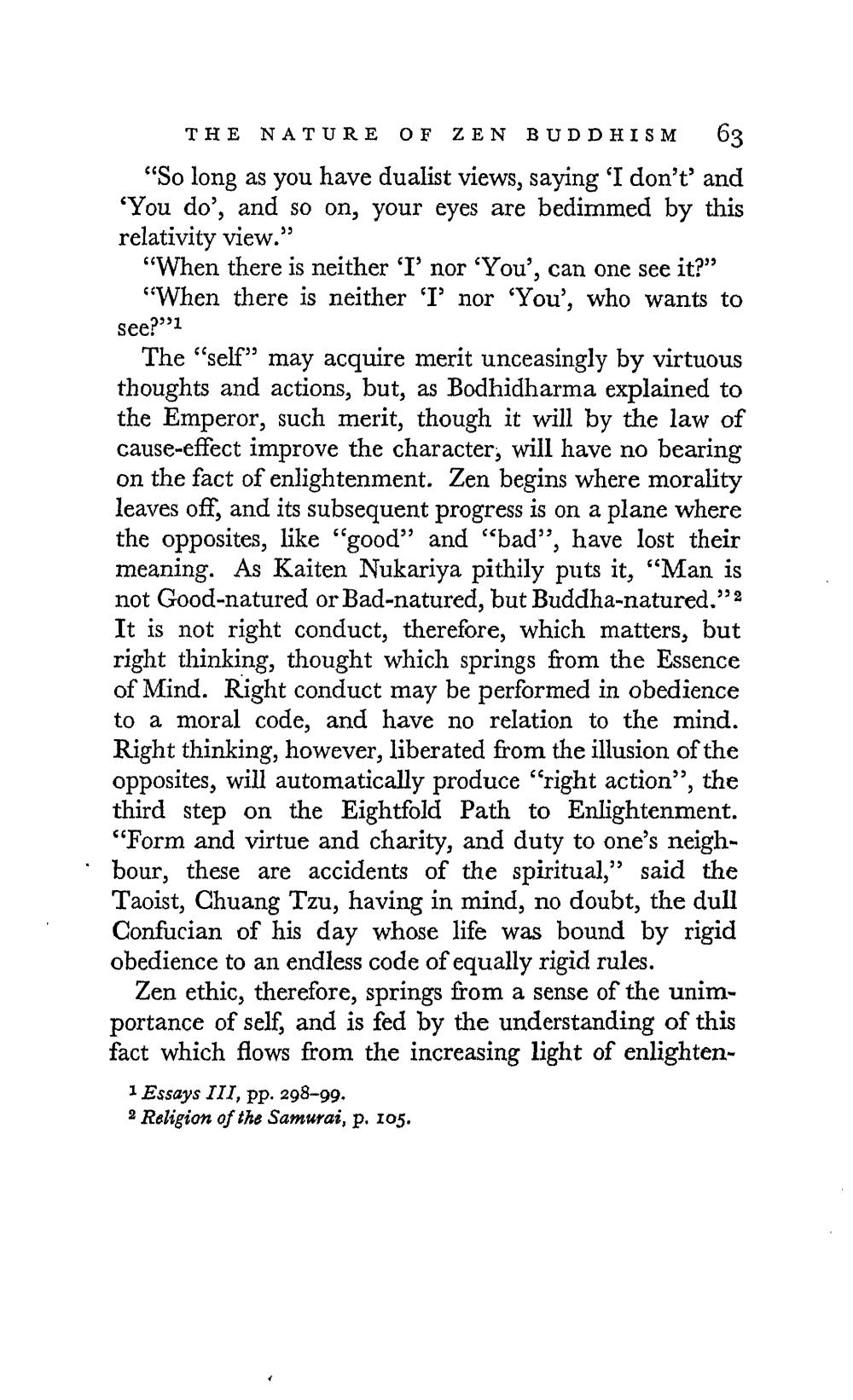________________
THE NATURE OF ZEN BUDDHISM
63
"So long as you have dualist views, saying 'I don't' and 'You do', and so on, your eyes are bedimmed by this relativity view."
"When there is neither 'I' nor 'You', can one see it?" "When there is neither 'I' nor 'You', who wants to see?"1
The "self" may acquire merit unceasingly by virtuous thoughts and actions, but, as Bodhidharma explained to the Emperor, such merit, though it will by the law of cause-effect improve the character, will have no bearing on the fact of enlightenment. Zen begins where morality leaves off, and its subsequent progress is on a plane where the opposites, like "good" and "bad", have lost their meaning. As Kaiten Nukariya pithily puts it, "Man is not Good-natured or Bad-natured, but Buddha-natured."2 It is not right conduct, therefore, which matters, but right thinking, thought which springs from the Essence of Mind. Right conduct may be performed in obedience to a moral code, and have no relation to the mind. Right thinking, however, liberated from the illusion of the opposites, will automatically produce "right action", the third step on the Eightfold Path to Enlightenment. "Form and virtue and charity, and duty to one's neighbour, these are accidents of the spiritual," said the Taoist, Chuang Tzu, having in mind, no doubt, the dull Confucian of his day whose life was bound by rigid obedience to an endless code of equally rigid rules.
Zen ethic, therefore, springs from a sense of the unimportance of self, and is fed by the understanding of this fact which flows from the increasing light of enlighten
1 Essays III, pp. 298-99.
2 Religion of the Samurai, p. 105.




